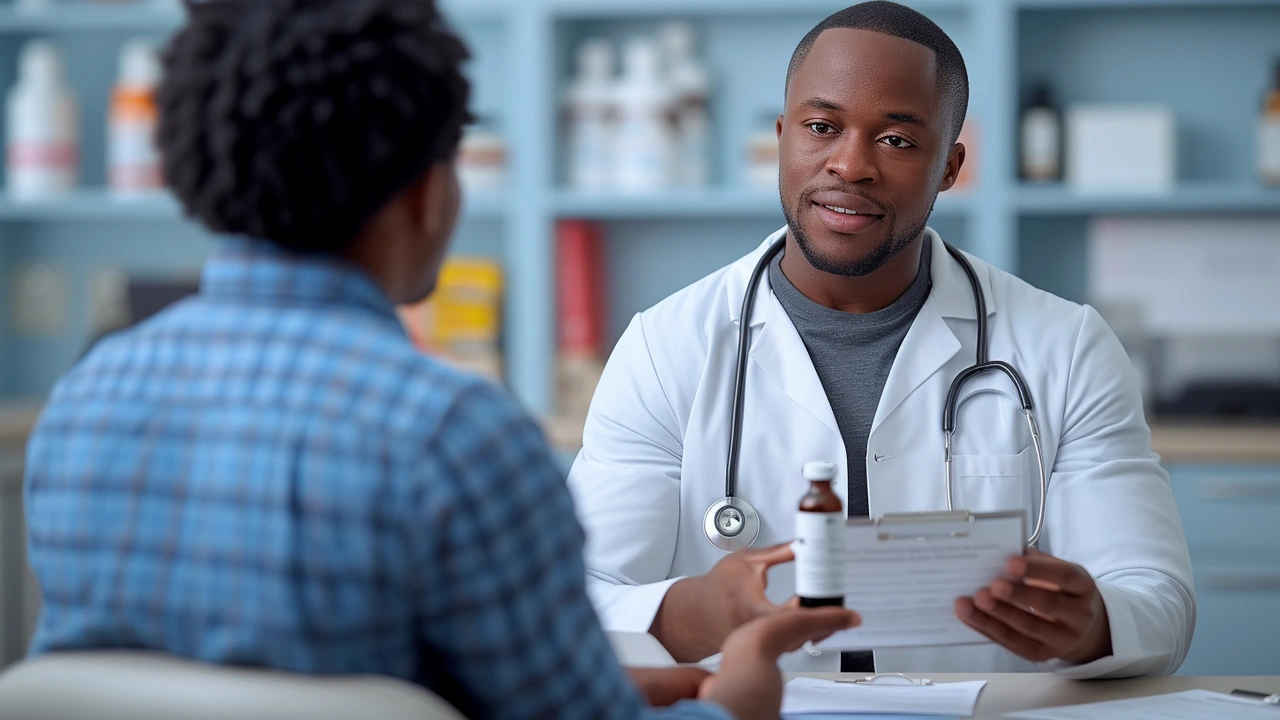Alcohol Dependence Treatment: Real‑World Tips You Can Use Now
If you or someone you love is struggling with alcohol dependence, the first step is simply knowing there are solid ways to get better. No magic cure, just proven methods that work when you apply them consistently.
Medication‑Assisted Treatment
Medications like naltrexone, acamprosate and disulfiram can cut cravings or make drinking unpleasant. Your doctor will decide which one fits your health profile. Naltrexone blocks the brain’s reward signal, so a drink feels less rewarding. Acamprosate helps calm the nervous system during early sobriety, reducing anxiety‑driven relapses. Disulfiram causes an immediate reaction—flushing, nausea—if alcohol is consumed, acting as a strong deterrent.
These drugs aren’t stand‑alone solutions; they work best with counseling and a supportive environment. Talk to your GP or a specialist about side effects, dosage, and how long you’ll need to stay on the medication.
Therapy & Support Groups
Cognitive‑behavioral therapy (CBT) teaches you to spot triggers—like stressful evenings or social pressure—and replace drinking with healthier coping tools. Motivational interviewing helps you find personal reasons to stay sober, which fuels long‑term commitment.
Support groups such as Alcoholics Anonymous (AA) provide peer accountability. Sharing experiences in a safe space can reduce shame and give you practical tips from people who’ve walked the same road. If AA’s 12‑step format isn’t your style, look for SMART Recovery or online forums that focus on evidence‑based strategies.
Combining therapy with medication boosts success rates dramatically. Many clinics offer integrated programs where a therapist coordinates with your prescribing doctor, ensuring you get consistent care.
Beyond formal treatment, everyday habits matter. Keep a daily log of cravings and triggers; patterns often reveal hidden stressors. Replace alcohol‑centric routines—like watching TV at the bar—with new activities: walking, hobby classes, or volunteering. Exercise releases endorphins that naturally curb urges.
Nutrition also plays a role. Alcohol depletes vitamins B1, B6 and magnesium. Replenishing these nutrients with a balanced diet or supplements can improve mood and reduce fatigue, making it easier to stick to your plan.
If you slip up, don’t treat it as failure. Treat each episode as data: what led to the drink? Who was there? What feeling triggered it? Use that insight to adjust your strategy—maybe add a therapist session or change your evening routine.
Finally, enlist a trusted friend or family member as an accountability partner. Ask them to check in daily, celebrate milestones, and help you navigate tough moments. Social support is one of the strongest predictors of lasting sobriety.
Alcohol dependence treatment isn’t a single‑step process; it’s a series of small, manageable actions that add up over time. Start with a conversation with your doctor, explore medication options, join a supportive group, and build healthier habits day by day. You’ve got the tools—now put them to work.

This article delves deeply into the topic of Antabuse (Disulfiram), a medication purposely designed to support individuals struggling with alcohol dependence. We will explore its mechanism of action, the potential side effects and the critical drug interactions one should be wary of. Furthermore, we will provide an insight into the most common dosage and tips for consuming Antabuse safely. Our goal is to furnish readers with valuable information that aids in making informed decisions regarding their treatment options.
Read More